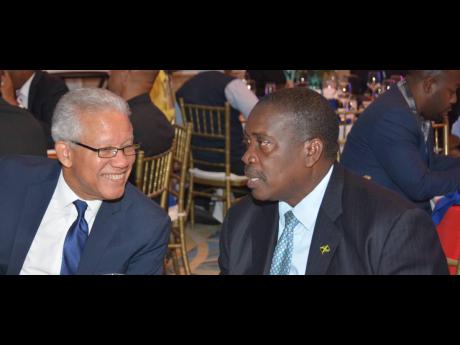Maritime Authority of Jamaica represents interests of smaller nations
Rear Admiral (ret’d) Peter Brady, director general of the Maritime Authority of Jamaica (MAJ), in a recent interview, discussed the involvement and expansion plans of the MAJ and the Jamaica Ship Registry (JSR), which it administers.The Maritime Authority of Jamaica is a statutory arm of the government of Jamaica and administers the JSR.
The organisation conducts the registration of all types of ships, including pleasure craft, ships under construction, as well as those bareboat-charter. The JSR, since its inception, has welcomed large deep-sea ships, such as tankers and ships under construction, including tankers, as well as all other categories of ships, except international fishing vessels.
“With incentives already built into the registration process for the benefit of larger and newer ships, we expect that in the near future, the market will find greater acceptability/sufficiency in the JSR offering,” said Rear Admiral Brady.
“The JSR has an experienced technical staff who monitor the vessels and provide consultancy to shipowners on conventions and industry best practices. The registry is poised for growth and currently seeks to enhance that posture for greater growth within a framework of ISO 9008:2015 certification”.
The JSR is well served globally by both the International Association of Classification Societies (IACS) and non-IACS registrars of ships (Ros) with the provisions of the RO Code guiding its management of standing arrangements. IACS is a technically based non-governmental organisation. More than 90 per cent of the world’s cargo-carrying ships’ tonnage is covered by the classification standards set by member societies of IACS.
Marine classification is a system for promoting the safety of life, property and the environment primarily through the establishment and verification of compliance with technical and engineering standards for the design, construction and life-cycle maintenance of ships, offshore units and other marine-related facilities.
IACS also plays a role within the International Maritime Organization (IMO), for which IACS provides technical support and guidance, and develops unified interpretations of the international statutory regulations developed by the member states of the IMO.
Jamaica, by being a member of the IMO Council, is able to influence international maritime policy and ensure that the views of small island developing states (SIDS) and least developed countries (LDCs) are considered in deliberations.
“As a major maritime state in the Caribbean, we have consistently represented the interests of the Caribbean region as well as those of SIDS and LDCs,” Admiral Brady said.
Major voice
Jamaica has been a major voice in the debate on low-sulfur fuel oil (LSFO) and promoting the Ballast Water Management Convention (BWMC).
“We are determined to protect our waters from invasive aquatic species. Jamaica is a lead partner country under the IMO supported GloBallast Partnership Programme and continues to play a major role in the implementation of the project in the Caribbean region”.
“The country hosted the pilot regional workshop on the conduct of Port Biological Baseline Surveys, which is a key element in the compliance regime of the Ballast Water Management Convention 2004. The Government of Jamaica has acceded to the BWC,” Admiral Brady said.
On the domestic front, the Government of Jamaica has diversified its energy mix and the promotion of liquified natural gas (LNG) is being encouraged. Recently a large LNG distributor established a LNG terminal in Jamaica.
“We do not expect a fallout from the availability of LSFO come January 2020. We anticipate that LSFO will be imported as the market dictates.” Admiral Brady said.
Promoting local seafarers is also high on the agenda. Jamaica is a growing seafarer supply nation, and the Government of Jamaica through the Caribbean Maritime University (CMU) continues to promote seafaring as a viable career for Jamaican, other Caribbean and foreign nationals.
The Government has also been engaged in the expansion and upgrading of the facilities at the CMU to support the increased output of seafarers and has strengthened agreements with ship owners to partner with the CMU for increasing the training opportunities of seafarers for the international market.
Jamaica is the primary source of tertiary maritime training for Caribbean nationals. CMU is the only IMO-recognised maritime education and training provider in the English-speaking Caribbean for the training of officers.
There are several deep-sea shipping companies that currently employ Jamaican seafarers as officers and as ratings.
For example, one of the leading LNG carriers has in their employment in excess of 100 Jamaican seafarers serving in various capacities within its fleet.
Bunkering
The Jamaican Government has also been actively promoting bunkering and in 2018 we hosted the International Bunker Industry Association workshop and conference.
A few bunker suppliers have entered the local market, and it is anticipated that more will follow. There is the forecast of an increase in shipping traffic with the widening of the Panama Canal and the island’s geographical advantage that will provide the opportunity for the country to capitalise on a greater demand for bunkers.
“To build the industry, we do recognise that the Maritime Authority of Jamaica will need to increase regulation and oversight of the industry to ensure that quality fuels and quantities are guaranteed, thus giving vessel owners confidence,” Brady concluded.

